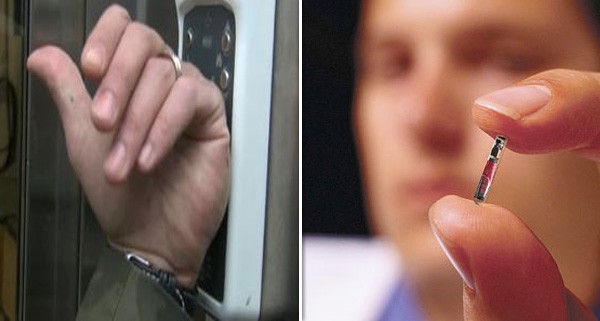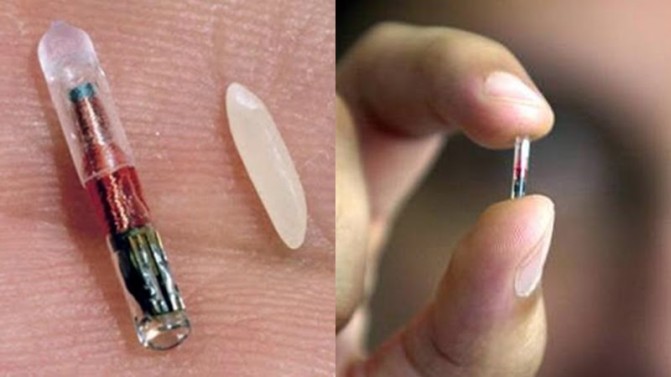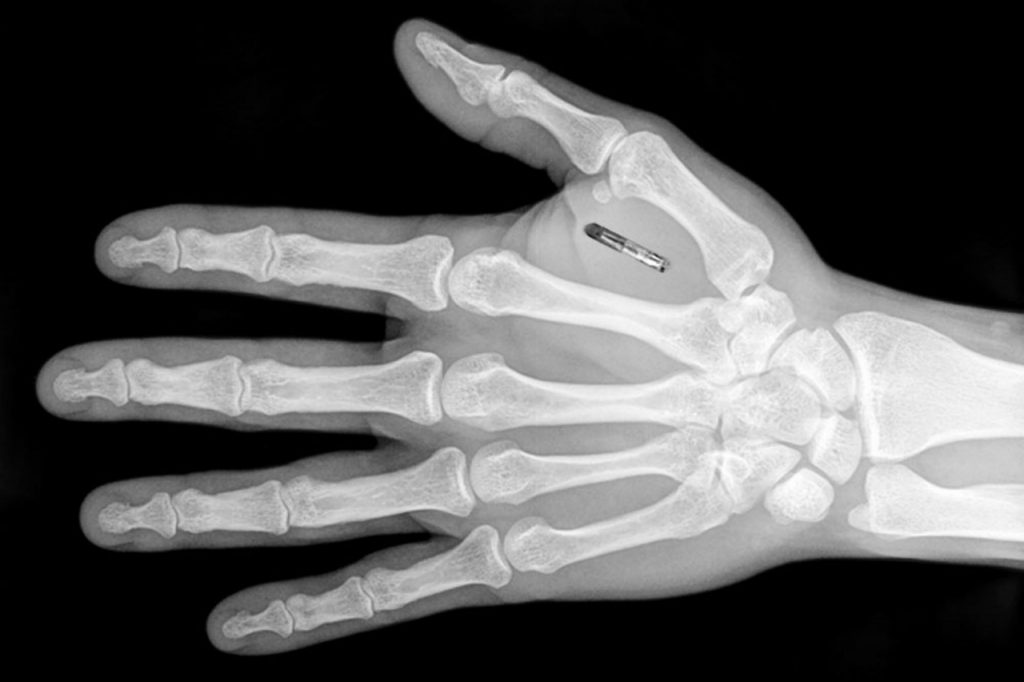
STOCKHOLM, Sweden – A first as far as we know, this is a first. There’s a company in Sweden implanting their employees with microchips. The employees getting the chips do it of their own volition.
It’s like some kind of syndrome of imprisonment where you come to love your captors… something like that. I’ll come up with a name. Give me a minute…
Stockholm Syndrome is a clinical diagnosis dating back to the 70s, where captives feel an alliance with their captors. The reference is to a hostage situation that took place in Stockholm in 1973. Victims of a bank robbery refused to testify against their captors in court after the affair.
This is how the world as we know it ends, where every doomsday prediction about Big Brother sprouts glorious wings and takes a flight through Hades. We are officially at the end of privacy’s sidewalk. Either that or everybody is overreacting.
Epicenter

Epicenter employees |dailymail.co.uk
The company provides network and office space to startups, which is kinda exciting. They’re not home to one cool new idea, but hundreds of them. Under their roof, ideas will become revolutions, not unlike the idea of chipping one’s own employees.
Said Patrick Mesterton of the project, “The biggest benefit I think is convenience.”
Epicenter employees use their chips to do everything, open doors, buy food, operate equipment, and anything they add to the list of tricks.
The possibilities included replacing most of the most important possessions in our lives: keys, cards, and IDs. The chip can replace them all.
It gives the bearer an identity number, like a hotel room number. This allows them to create an account and bill purchases to it. Forget Apple pay; I have Me Pay.
Forget Apple pay; I have Me Pay.
Chipping
It’s not as sinister as it sounds. The rice-sized microchips are the same basic chip you put in your dog or cat. They’re radio frequency identification (RFID) chips, not strong enough for anyone to track them.
RFID chips last (darn close to) forever without a battery replacement, so their power consumption has to be low, making their range about six inches at best.
The only way someone could use one to track you is if you hacked your smartphone to bridge your GPS location with your RFID chip. Then you’d have to keep your phone to the implant to ensure constant tracking.
In other words, the only harm to the employees of Epicenter is possible infections.
Benefits

alternativemediasyndicate.com
Beyond giving employees the ability to buy food and open doors, a RFID chip gives them unbeatable security. For bother Epicenter and the employees, what they access Epicenter tracks.
It would be difficult to forge my RFID signature while I was conscious to make it look like I hacked the building security system. Likewise, you can’t buy food on my dime without removing my hand where the chip lives.
My phone, however, could give you access to my bank accounts or other persona data, and I could lose that thing ten times a day. Good luck losing an implant.
Concerns
The easy argument is, “today it’s a harmless chip, tomorrow it’s a more sophisticated tracking device.” Once we get used to the idea of companies implanting technology, we’re on a slippery slope to an Orwellian future.
It’s true. This could happen. Any argument I would make against this would only further steel one’s concerns if he had any. This hasn’t stopped Epicenter employees from lining up for their chip.
As of this writing, they’ve chipped 150 employees.
Are we losing our privacy more and more every day? Perhaps, but our means of encryption also grow. It seems we will continue to forfeit and gain in this privacy paradox for the foreseeable future. Don’t get chipped if you don’t want to.
Source: Malaysian Digest

